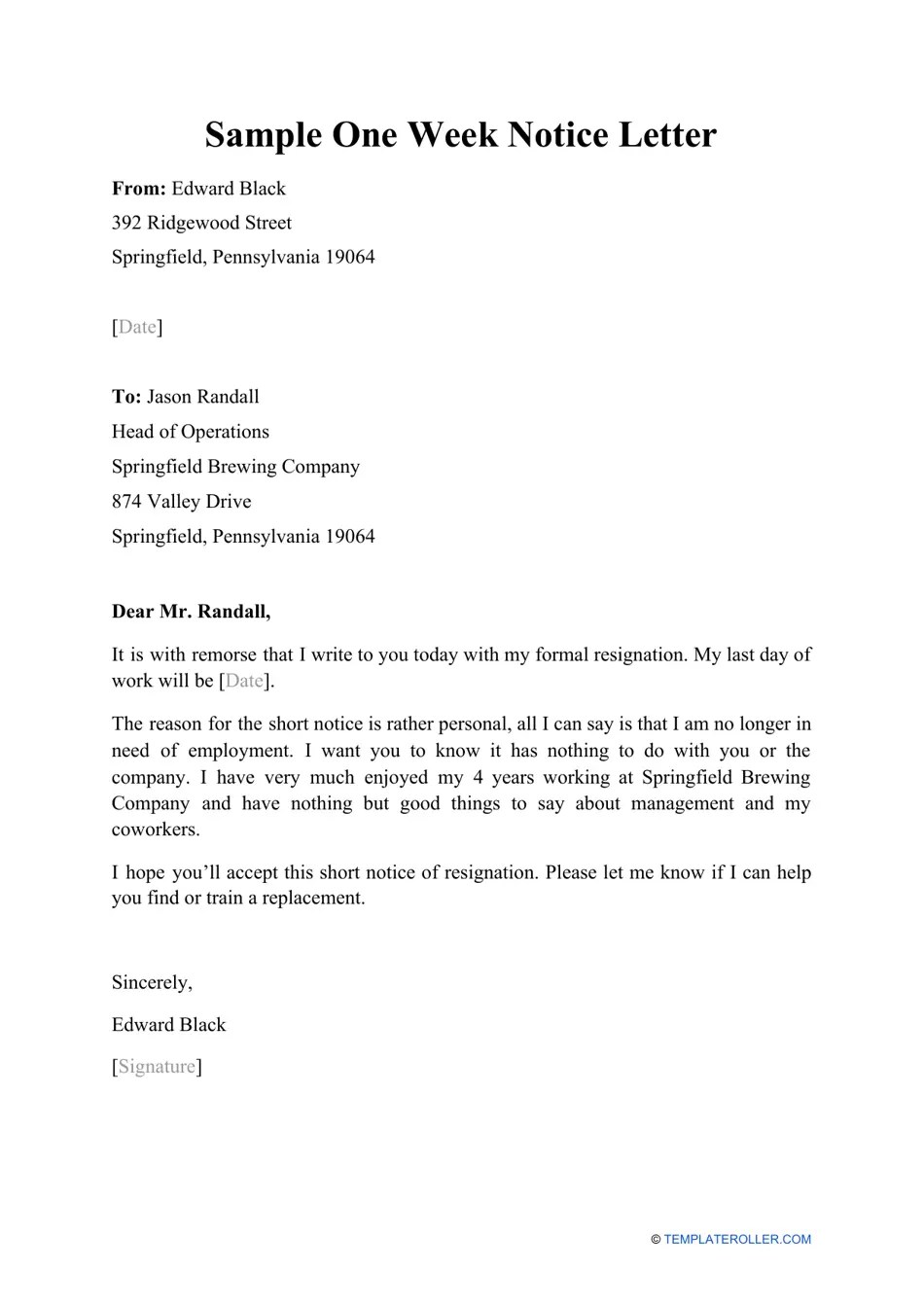Resigning from a job can be a daunting task, but sometimes circumstances require us to make a quick exit. If you find yourself needing to resign with just one week’s notice, it’s important to do so professionally and respectfully. In this article, we will discuss what a 1-week notice resignation letter is, why you may need one, what to include in the letter, and how to write it effectively.
What is a 1-Week Notice Resignation Letter?
A 1-week notice resignation letter is a formal document that an employee submits to their employer to inform them of their intention to resign from their position with only one week’s notice. While the standard notice period is often two weeks, there are situations where an employee may need to provide a shorter notice due to personal or professional reasons.
It’s important to note that giving less notice than what is stated in your employment contract or company policy may have consequences, such as burning bridges with your employer or a potential negative impact on your professional reputation. Therefore, it is crucial to consider the potential ramifications before deciding to submit a 1-week notice resignation letter.
Why Do You Need a 1-Week Notice Resignation Letter?
There are several reasons why you may need to submit a 1-week notice resignation letter:
- Urgent personal matters. Sometimes, unforeseen circumstances arise that require you to leave your job on short notice. This could include family emergencies, health issues, or other personal matters that demand your immediate attention.
- New job opportunity. If you have been offered a new job that requires you to start sooner than your current notice period allows, you may need to submit a 1-week notice resignation letter to ensure a smooth transition.
- Hostile work environment. In some cases, the work environment may become unbearable, and you may need to leave as soon as possible for your well-being. In these situations, it is important to prioritize your mental and emotional health.
- Contractual obligations. Your employment contract may specify a shorter notice period for resignation, or you may be in a probationary period where a shorter notice is acceptable. It is essential to review your contract and company policies to understand your obligations.
- Unforeseen circumstances. Life is unpredictable, and sometimes situations arise that necessitate a sudden departure from your job. It is important to communicate with your employer as soon as possible and provide an explanation for your short notice.
What to Include in a 1 Week Notice Resignation Letter
When writing a 1-week notice resignation letter, it is essential to include the following information:
- Date: Begin the letter by including the date of submission.
- Recipient: Address the letter to your immediate supervisor or the appropriate person in your organization’s HR department.
- Salutation: Start the letter with a formal salutation, such as “Dear [Supervisor’s Name],” or “To Whom It May Concern.”
- Statement of resignation: Clearly state your intention to resign from your position, providing the specific date of your last working day.
- Reason (if applicable): If you feel comfortable doing so, you can briefly mention the reason for your shortened notice period. However, it is not mandatory to disclose personal details.
- Gratitude: Express your gratitude for the opportunities and experiences you have had while working for the company.
- Offer of assistance: Offer your assistance during the transition period to ensure a smooth handover of your responsibilities.
- Closing: End the letter with a professional closing, such as “Sincerely” or “Best regards,” followed by your full name and contact information.
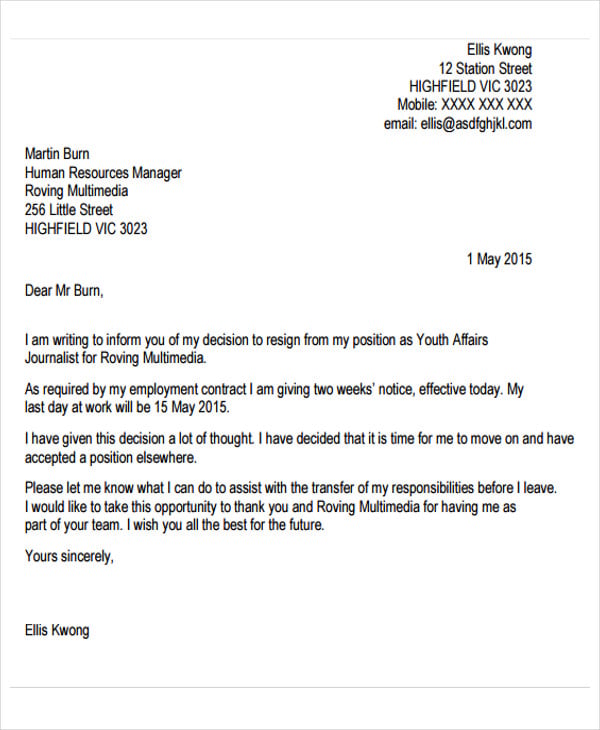
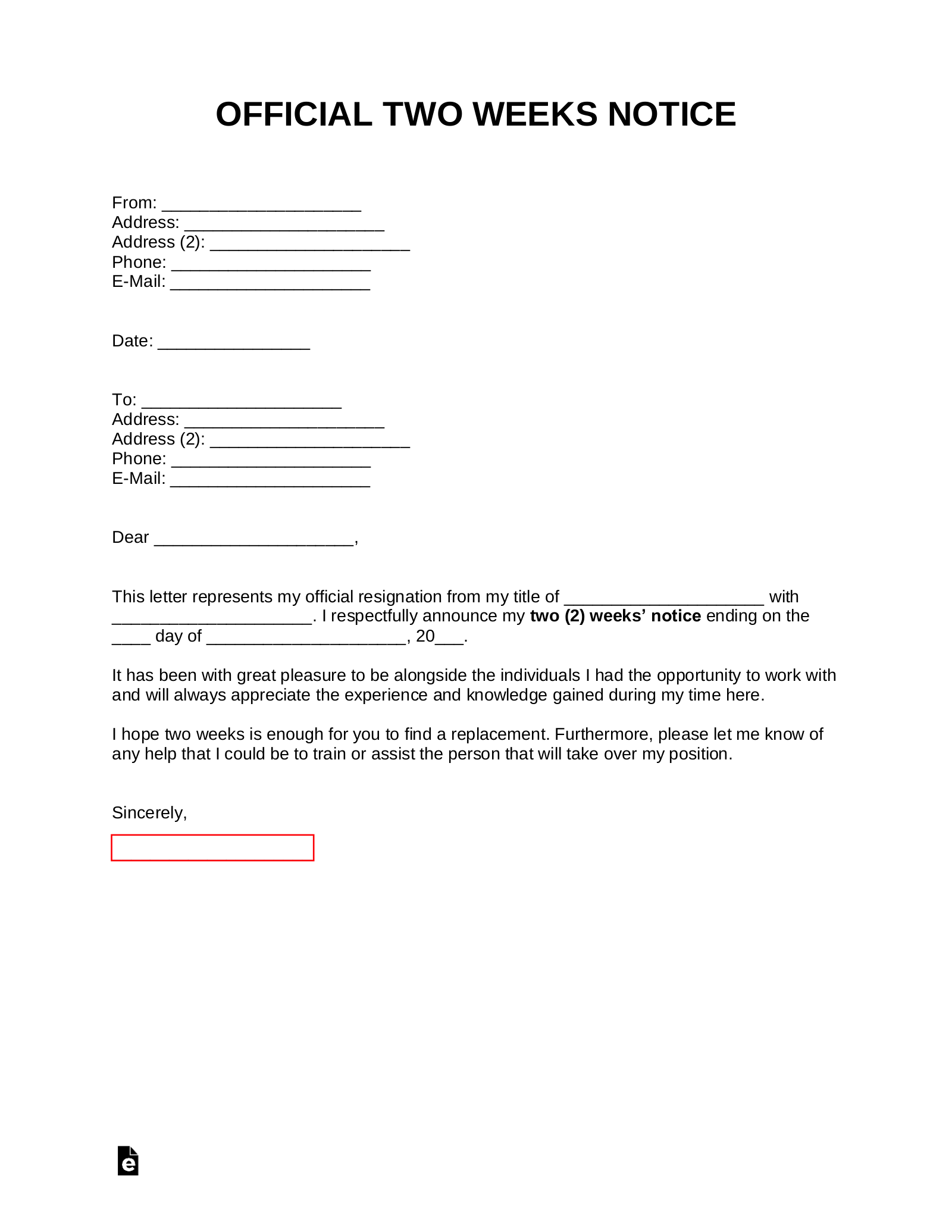
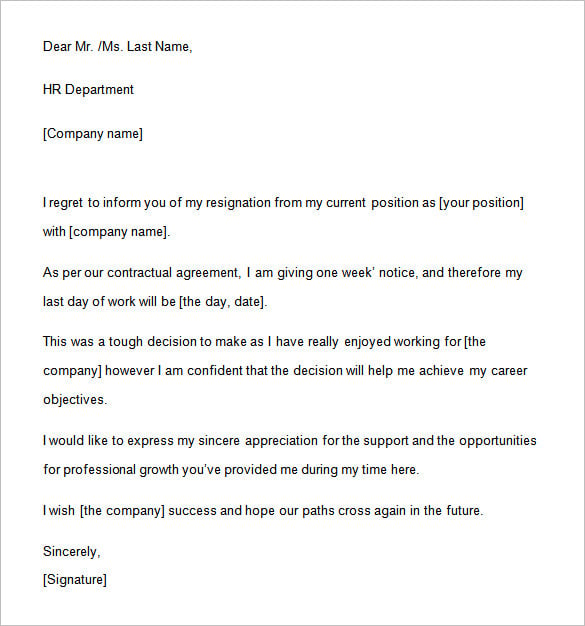
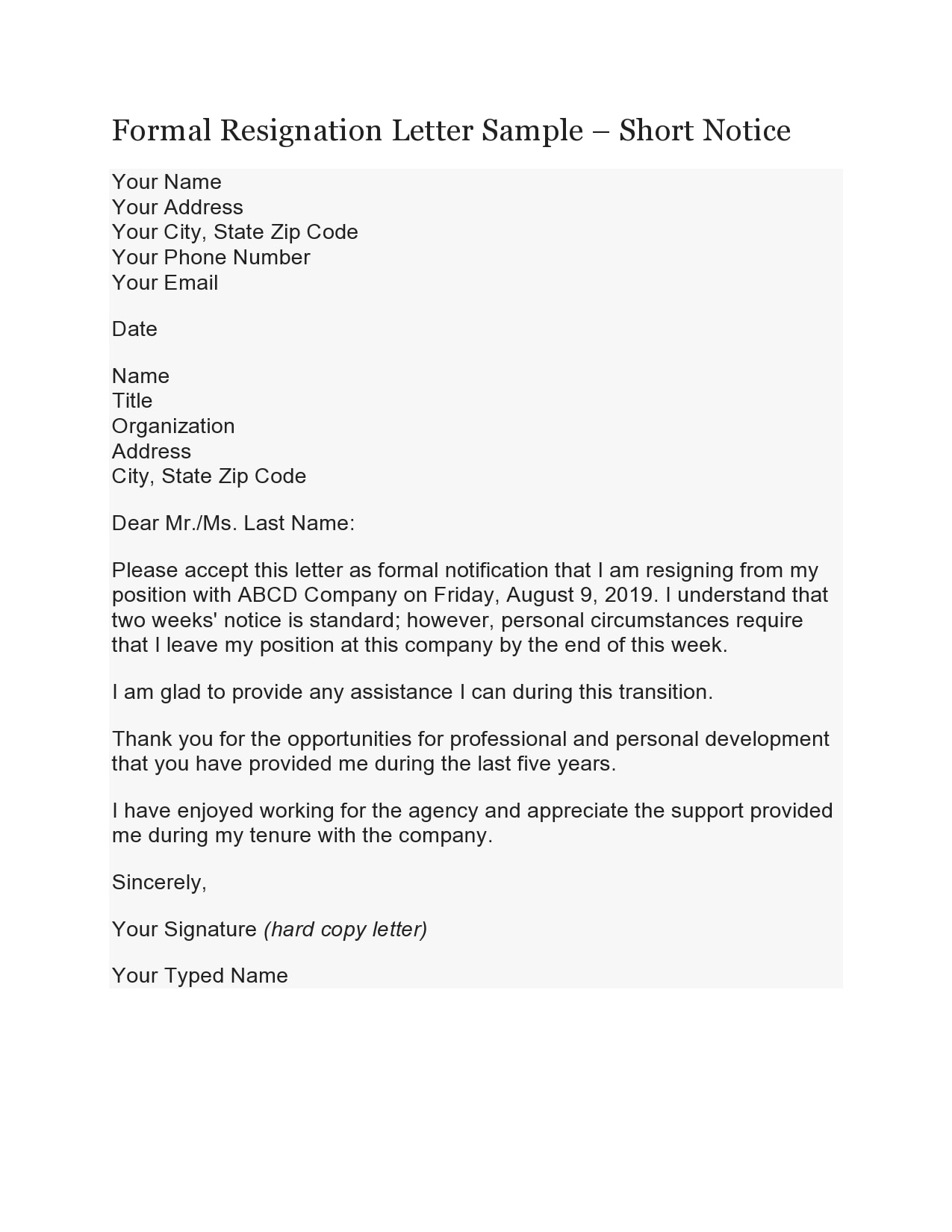
How to Write a 1 Week Notice Resignation Letter
Writing a 1-week notice resignation letter requires a thoughtful and concise approach. Here are some steps to help you write an effective letter:
- Be clear and direct: State your intention to resign and provide the specific date of your last working day. Avoid ambiguity or leaving room for misinterpretation.
- Keep it professional: Maintain a formal tone throughout the letter and avoid any negative or emotional language.
- Express gratitude: Take the time to express your appreciation for the opportunities and experiences you gained during your employment.
- Offer assistance: Show your willingness to assist with the transition period and provide any necessary information to ensure a smooth handover of your duties.
- Proofread and edit: Before submitting the letter, carefully proofread it for any grammatical or spelling errors. Make sure the letter is concise and well-structured.
Remember, submitting a 1-week notice resignation letter should not be taken lightly. It is important to consider the potential consequences and weigh them against your circumstances. By following the guidelines outlined in this article, you can resign with professionalism and maintain a positive relationship with your employer.
1-week Notice Resignation Letter Template Word – Download
